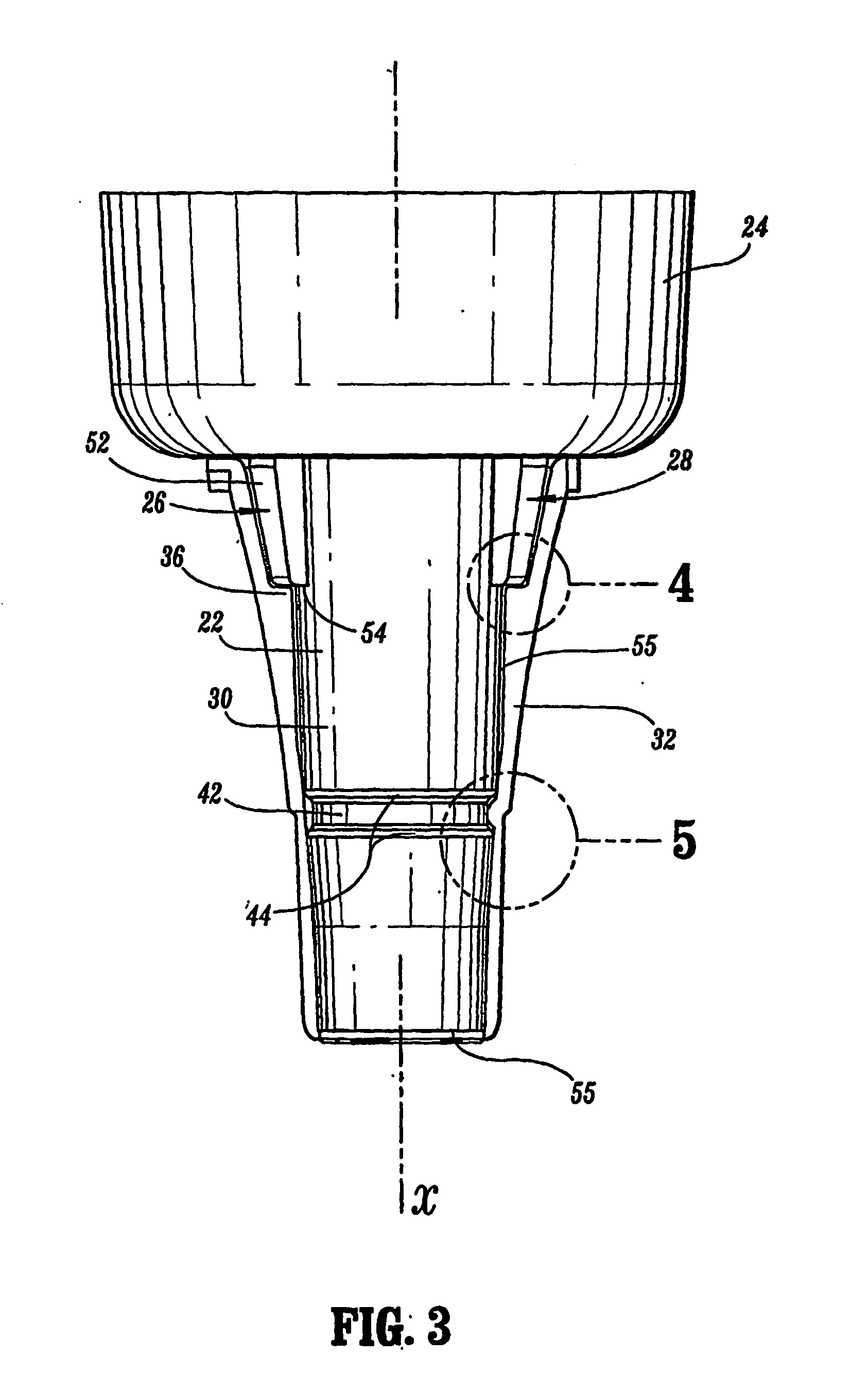Tympanic thermometer with ejection mechanism
- Summary
- Abstract
- Description
- Claims
- Application Information
AI Technical Summary
Benefits of technology
Problems solved by technology
Method used
Image
Examples
Embodiment Construction
[0036] The exemplary embodiments of the tympanic thermometer and methods of use disclosed are discussed in terms of medical thermometers for measuring body temperature, and more particularly, in terms of a tympanic thermometer that employs an ejection apparatus and a probe cover to improve temperature measurement accuracy and safety to minimize disease, bacteria, etc. propagation. It is envisioned that the present disclosure finds application for the prevention, diagnosis and treatment of diseases, body ailments, etc. of a subject. It is further envisioned that the principles relating to the tympanic thermometer disclosed include proper removal of a used probe cover via the ejection apparatus and indication to a practitioner whether a new, unused probe is mounted to the tympanic thermometer.
[0037] In the discussion that follows, the term “proximal” will refer to the portion of a structure that is closer to a practitioner, while the term “distal” will refer to the portion that is fu...
PUM
 Login to View More
Login to View More Abstract
Description
Claims
Application Information
 Login to View More
Login to View More - R&D
- Intellectual Property
- Life Sciences
- Materials
- Tech Scout
- Unparalleled Data Quality
- Higher Quality Content
- 60% Fewer Hallucinations
Browse by: Latest US Patents, China's latest patents, Technical Efficacy Thesaurus, Application Domain, Technology Topic, Popular Technical Reports.
© 2025 PatSnap. All rights reserved.Legal|Privacy policy|Modern Slavery Act Transparency Statement|Sitemap|About US| Contact US: help@patsnap.com



